#improper burial tw
Explore tagged Tumblr posts
Text
Year 1677
TW/CW: Death
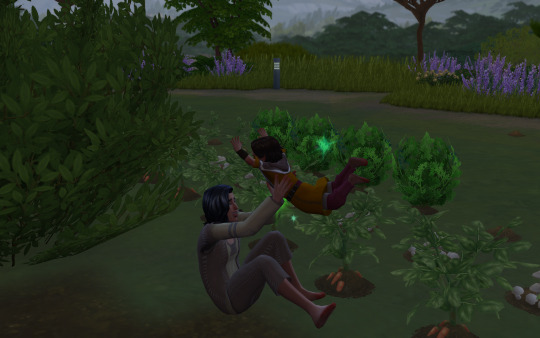
Giuliano adored his young children but being as Bastiano would likely inherit their family home and farm he made certain to teach him in the garden just like his father did though they did frequently get distracted.
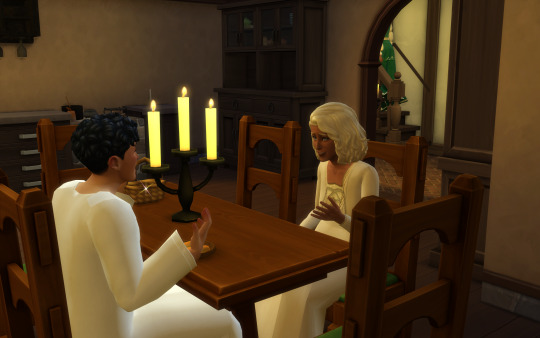
In February, there was thankfully little bad news to share in fact Giulia was delighted to receive a letter from Orelia saying that Antonio's wife had delivered a little girl though at the time of the letter Sarah and Orion were still bickering over what to name her. Still the news was welcome.

Marcello made more frequent visits to the Morosini home especially as his young cousin was growing up well since it made him all the more certain that there would be no issue with him leaving once he was an adult and married.

Antonio's youngest grew into an admittedly intense little one as the seasons prepared to change from Spring to Summer.

Tala enjoyed the house being so full of children after so long alone. She only hoped that in the future it would always remain like that.

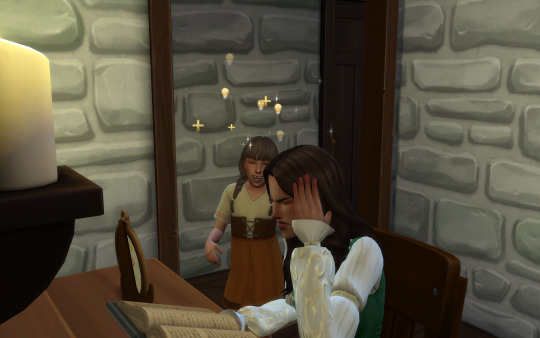
Whenever Ashley needed a break from her family she'd come to the Rossi Carlisle home to spend time with her little cousin. She loved the excitement the Morosini always bustled with but after growing up in a relatively small household, it was frequently too much now that there were four small children. Thankfully the older two wouldn't be that little for much longer.
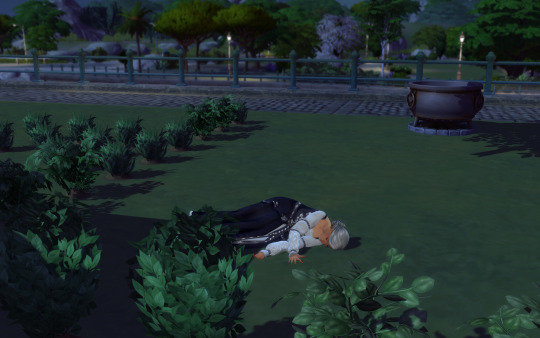

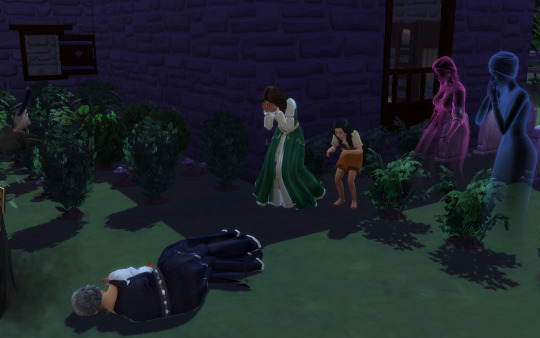
Sadly it was getting late into the night during one of Ashley's visits that on her way back home she noticed Tala collapsed in the garden and her shocked yell alerted Marina. Age had finally come for Tala as on July 1st she was confirmed to have passed away.

The burial and subsequent mourning put a damper on the fact that young Nicola had grown out of his infancy and into a little boy. The changes in the household didn't end there as now that there was no woman in the household, Gabriella insisted that it was improper to have her niece be in the home when she was getting close to marrying age so Alessandro made arrangements that she would move out by the end of the year and into her aunt's home.

The year progressed as the family grieved the loss of the matriarch that had supported them through the years but in October, Orelia was happy to share that Antonio's youngest son had grown into a young boy big enough to play with her daughter and his brother.
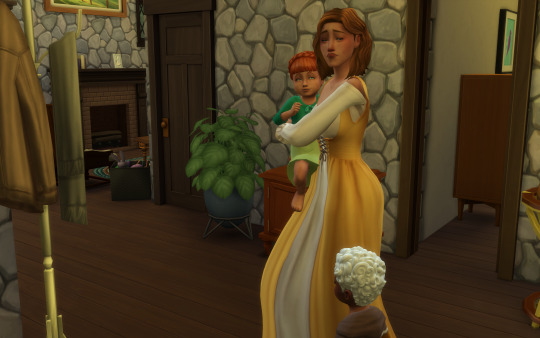
As the year came to a close though, the newness of Newcrest had officially faded and she thought once more about traveling but she also thought about how close together the losses of the recent years had been and decided not to take action in fear of acting from grief but also because her daughter was so young and her niece had little support without her.

#Alexis Carlisle#Tala Carlisle#Giulia Morosini#Orsa Rossi#Alessandro Rossi#Orelia Morosini#Giuliano Morosini#Ashley Morosini#Giovanni Cesare Morosini#Marcello Collari#Antea Taroni#Marina Rossi#Orsetta Morosini#Bastiano Morosini#Skyler Carlisle#Blake Carlisle#Nicola Rossi#The Carlisle Chronicles#Decades Legacy Challenge#tw death#cw death#1677#1670s#ts4
2 notes
·
View notes
Text
"Oh, but the British Museum ~needs~ to keep all of it's looted artifacts for historical purposes/proper preservation/because the countrires of origin don't have the infrastructure".
Sucks to still be licking the British Empire's boots, I guess, but I was raised in Botswana. I visited Tsholofelo Park as a kid. I'm descended from San people.
I know what happened to El Negro.
I'd love more than anything to be able to use his name, but there's no record of it.
I'm aware that "El Negro" is an incredibly loaded and outdated term, and I'm not happy that it's the only term used even within an academic setting. I am in no way using the term as an insult, nor attempting to reclaim it.
At this point, I'd like to warn you that the story of El Negro is very distressing, and involves human taxidermy. Do not read below the divider if this is a potential trigger.

For those of you who don't know, El Negro was the name given to a member of the San people, a young man and warrior who died around the year In 1830. Jules Pierre Verreaux witnessed the burial the warrior, and returned to the burial site at night to dig up the body, where he retrieved the skin, the skull and a few bones.
Verreaux intended to ship the body back to France and so prepared and preserved the African warrior's corpse by using metal wire as a spine, wooden boards as shoulder blades and newspaper as a stuffing material. Put succinctly, he treated the body of a respected warrior like an animal, because the man was an African.
Side note: burial is like, A Big Fucking Deal in most if not all African communities. Respect for your elders and those of higher societal standing is a big cultural touchstone, and often the best way to show this is in funerary rites and burial. In addition, folk and indigenous religions can involve communication with your ancestors via the sangoma. My own nkuku practised traditional religion, and while my family consists of Protestant Christians, I was raised with frequent visits to the family graves, where my dad explained the significance of the people buried there in our family history.
Not that any of this mattered to Verreaux, who shipped the body to Paris along with a batch of stuffed animals in crates. In 1831, the African's body appeared in a showroom at No. 3, Rue Saint Fiacre. In 1916, the San warrior was acquired by the Darder Museum of Banyoles, and subsequently loaned to European museums, though Darder remained the primary location of his body.
He became known as the Negro of Banyoles, or El Negro.
The body remained in the museum until 29 October 1991, when Alphonse Arcelin, a doctor of Haitian origin went "holy fuck it's literally 1991, why are you still displaying an African man's body as a curiosity you sick bastards" and wrote to the city mayor, asking that the body be removed from the museum and returned to Botswana for re-burial (it would be 2000 before this was agreed, and it would be discovered later that he may have been interred in the wrong place as the San are a nomadic people and country boundaries were redrawn following independence).
The issue caught media attention internationally, and many international museum associations started sweating. Not because of "holy fuck, maybe keeping people's bodies in glass boxes is intensely offensive to their cultures and we should stop that" reasons, but because it made them fear that human remains kept in museums might have to be returned to their place of origin.
Yeah.
This story isn't specifically about the British — though it happened in colonial Botswana — but the ugliness of the legacy is the same.
Just as Darder Museum stripped the identity, dignity and culture of the San warrior, turned something as profound and private as the grave into a token curiosity of "primitive people" for white eyes, the British Museum's refusal to repatriate culturally significant items to the cultures of origin does the same.
Culture is something intensely significant.
Culture is the reason I can't give back a container empty and call everyone older than me Aunty or Uncle no matter their blood relation to me.
The object of culture are even more so. They are integral to who we are as a people, especially if like me you live in diaspora.
The basketwork and beads Botswana is known for, that decorate our house, are a part of me. To lose them would be to lose a little bit of home. To have them stolen then clearly displayed for the world to see, within sight but not reach, would be an insult I'd take with me to the grave.
The indignities and injustices of colonialism linger still. The bare minimum would be to return bodies and artifacts to allow us to honour them in their own way.
You can read more about El Negro here and here. In addition, you can find the book following the struggle for the repatriation of his remains, titled El Negro and Me.
If you want other resources on racism, social justice and how we can prevent cultural annihilation, check out @justsomeantifas. For a more historically focused view on museums, museum ethics and cultural anthropology, check out @thatlittleegyptologist, as well as @museum-spaces
#racism in the uk#racism tw#colonialism tw#colonialism#disturbing graves tw#improper burial tw#repatriation#the british museum#tw body horror#em.txt#em is african#Once again I am exposing the trauma of colonialism to implore white people to give us our shit back#It sucks that this still warrants explanation#imperialism#british empire#[deep sigh] unfortunately this is far from my first rodeo#south african history#african history
858 notes
·
View notes
Note
Whilst I'm in no way qualified to talk about history outside of my own interest I do have metaphorical skin in the game with regard to private collections as an African living in diaspora.
One of the most infamous examples of private collection being the Work Of The Actual Devil is El Negro De Banyoles, which I have written about before and hyperlinked here.
The TLDR: in 1830, the Verreaux brothers desecrated the grave of a San warrior who'd died aged about 27, stuffed his corpse, taken his grave goods, and kept his body as a part of a private collection until 1916, when he was given to the Darder museum and remained a key attraction until his repatriation and burial.
See, El Negro's body shouldn't have been on display in the first place - the rituals surrounding death and burial are a Big Fucking Deal in most African cultures, and Botswana is no exception. The refusal of the Darder Museum to acknowledge their wrongdoing in the refusal of repatriation so that a colonial wrong could be righted and the San tribesmen could finally be laid to rest peacefully is still a sore point for Motswana people descended from San like myself to this day.
By no means did they handle the situation with any tact or grace, but crucially, El Negro was ""properly"" displayed in the Darder, unlike the Verreaux collection.
If repatriation isn't possible — different rant for another day but suffice it to say I want the Herero skulls returned Immediately — then at the very least, artifacts of culture should be kept in an environment where they are protected and well looked after.
The objects of culture we have at home - Motswana basket work, ostrich eggshell art, jewellery - are all family heirlooms, and were bought when I was a littlun from craftspeople from my dad's village of origin. Importantly to this, they're a reminder of where I'm from, where one day I will be buried - they are a piece of my history.
Culture doesn't happen in a vaccum. Before these things were artifacts in a museum or a private collection, they were someone's culture, someone's piece of home.
The least we can do is make sure they're properly cared for, protected from damage and available to educate others with and learn from, and educate others on how they got to be in museums in the first place.
Museums afford proper care and maintenance, and education and discussion surrounding colonial history and the ethics of keeping cultural artefacts. There's none of that in private collections.
First off, thanks for answering my other ask, you are still great as always. Second, do you mind sharing your opinion of the fact there are a lot of archaeological items and ancient literature that are held within personal and private collections completely unavailable to the public. Also if you don't sharing this around, I was hoping to have a bit of an open discussion with whomever would like to chime in as well. Personally, the thought that there is a literal treasure trove of history out there in the ether that might never be seen or heard of is more than just irksome. However, I know that not everyone would think the same way, so your thoughts and the thoughts of others is greatly appreciated.
I can be very short about this: private collections are a plague that need to be abolished. There is simply no ethical way to accumulate and maintain a private collection.
If you own artefacts that are part of your culture and which e.g. belong to your family, that's another matter of course, but I wouldn't count that as a private collection anyway because those are cultural and familial possessions.
#[deep sigh] rich white people learned fuck all from their colonial predecessors unfortunately#I am very much aware this is a nuanced discussion and there's many opinions and voices that have to be heard#and in recent years the discussions surrounding colonialism artefacts of culture and repatriation have become increasingly relevant#however as a direct descendant of San people I would just like to say that the signifance of The Bad Shit That Happens In Private Collectio#is still very much relevant and felt by the ancestors of those involved in the cultures of origin today#something something colonial trauma idk man it's a lot#also Do Not get me started on Mummy Brown Pigment it makes me very cross#el negro de Banyoles#south african history#botswana#improper burial tw
402 notes
·
View notes
Text
i am your wish, your dream come true / and i am your darkest nightmare, too.
sometimes ya gotta write a piece about your main antagonist ya dig? sometimes you gotta write about your main antagonist manipulating your other characters. titled after this song from next to normal.
tws for manipulation to the billionth degree and abuse(?) antigone takes on a surrogate-parental role in z’s life in order to manipulate them and it gets sketchy.
Of Antigone’s many forms, there is a single constant. This aspect has become its calling card, in many aspects.
However, you wouldn’t notice that constant unless you were looking closely, so it’s pointless to mention.
Z is a younger siren, characterized by their human appearance and mannerisms. Antigone thinks them acceptable.
It finds them outside of a club. Human social spheres are always bustling, and the light becomes too much for Antigone at times, but it is an easy place to find targets. Victims or otherwise.
Z sits on the bench outside, smoking a cigarette. Antigone takes a seat beside them. The two of them have spoken a few times before, and they will speak again. Antigone needs time to sink its claws into Z in order to truly understand them.
And when it truly understands them, it will be something to fear.
“The thing with younger sirens,” it says, voice low and melodic, “is that they have no place where they truly belong. No motivations.” It has taken the form of a shorter human, with cropped hair and long nails. Its eyes are round and its ears are a little bigger than what would be considered usual.
(It is important to nail the flaws if you want to gain the trust of someone. To seem more human to them, despite employing a distinctly nonhuman part of them; because, and this is crucial, you are appealing to their human side. To the side that wants something worth more than a simple meal.
This is why sirens like Z are ideal. They are profoundly human, and their strings can be tugged accordingly.)
Z snorts, but there is a second where they falter. Where they think, do I have no motivation, and that is the moment Antigone watches for. “And how old are you?”
Too old. Far too old for you to comprehend. “Old enough,” it says, “I do hope you come to understand, Z. Life is not so simple as the younger generation makes it out to be. There are debts to be paid in life.”
“Whatever,” Z blows smoke out of their mouth, “I don’t get you, man.”
Antigone smiles like it knows something—it’s a perfect smile. The kind of smile that Z wants to see—and shrugs. There isn’t much that needs to be said.
“Maybe you don’t understand right now,” their voice in this form is comforting, and that is by design. It’s meant to catch Z off-guard. To make them peek over the walls they have set up. Antigone keeps up its smile.
“Someday you might.” It stands and it walks away.
There is something cruel in that. Something cruel in saying someday you might, because it’s exactly what Z wants to hear.
Z wants to believe that someone holds out a hope for them—that someone wants them to understand. Antigone knows, because its purpose is to know these things. To know the deepest desire of any person that it intends to lure to its side, to employ to its purpose.
It was once every siren’s purpose, but it has been diluted. There are sirens who fight against that dilution, who say that it is a downfall, but Antigone is not one of those sirens, screaming for a history that is confusing and disappointing.
After all, assimilation with humanity—the closest relationship of sirenkind, their prey and their coexisting society—is inevitable. Antigone could not stop such a thing even if it wanted to, and it doesn’t want to. In truth, Antigone is aiming for something far different.
(It wants a proper burial. Redemption for an improper sacrifice.)
"I just. I miss my mom sometimes,” Z says. The statement marks the beginning of their wrongdoing. Antigone nods, sympathy creeping into its body language.
Z stares at the ceiling. They’re in a hotel, because Z has no home to speak of, and Antigone has no intentions other than to sway them to a cause they have no reason to care for. Antigone is there to give Z a reason to care.
They say, “I miss being loved, and I guess that’s pathetic.” Z is self-depreciating and self-pitying. Z is isolated, but not alone. They have a myriad of people who they could go to, but they refuse.
Antigone preys upon that. Upon that weakness. Upon that need for love.
They say, “I miss having people who cared about me, even a little. Even when I didn’t deserve it.” Z is getting choked up on their own words. Gods, they might even cry. Their grasp a handful of the hotel comforter.
Antigone places a hand on Z’s shoulder, “I care,” it says.
(Z wants a mother, says the primeval, whispering voice in Antigone’s head. Z wants someone to care about them.
Antigone will care about them, if that’s what it takes.)
Antigone plays mother when it pulls on Z’s strings. When it sends them to Greece to locate the last of the tribe sirens and when it demands information from them, it plays mother.
Z makes it ridiculously easy to control them, for all they want is praise. To be loved. To be cared about. To have the hand of kindness extended to them.
(There is a saying about the nightmare. The most chilling of nightmares—the one that truly rocks you to your core—does not begin as a nightmare. It is a dream, a blissful unreality, until it twists and turns and breaks.)
Antigone has been using a new form lately. A familiar one. Humanoid and wiry, with brown hair and marks of exhaustion under its narrow eyes. It doesn’t completely imitate Selma—the nightmare must ease into being a dream, lest the ruse be exposed too early—but it becomes part of her. It echoes her.
(If only it could get the fucking eyes.)
Antigone’s eyes, when it shifts forms, are unchanging. The irises cannot change color. Pitch black and void, much like Antigone is when it isn’t imitating, becoming something else, changing.
Antigone’s eyes are its calling card.
fantasies is the unofficial sequel to this if you wanna see z cry about their conflicting feelings.
i’ve switched from referring to antigone by they/them pronouns to it/its pronouns. that’s liable to change if it proves confusing or too difficult but i think it might work better.
3 notes
·
View notes